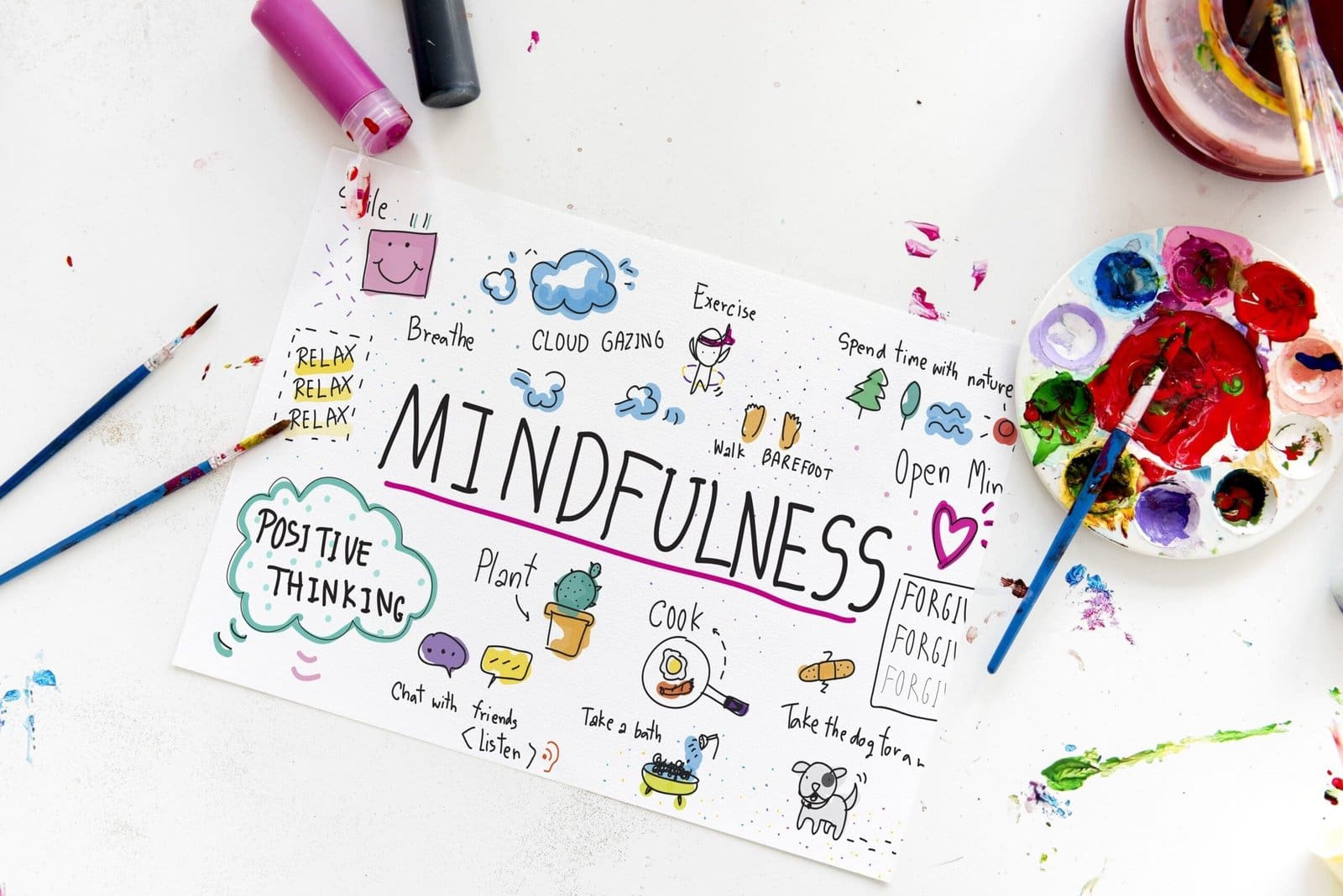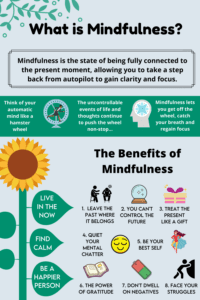Introduction to Mindfulness Practice
In today’s fast-paced and hectic world, finding balance and meaning in our lives has become more important than ever. One powerful tool that can help us achieve this is mindfulness practice. But what exactly is mindfulness practice? Mindfulness practice is the intentional act of bringing our attention to the present moment, without judgment. It involves being fully aware of our thoughts, feelings, bodily sensations, and the surrounding environment. By cultivating mindfulness practice, we can develop a deeper understanding of ourselves and the world around us, leading to a more balanced and meaningful life.
What is Mindfulness?
Mindfulness is the art of paying attention on purpose. It is about being fully present in the here and now, rather than being lost in thoughts about the past or worries about the future. By directing our attention to the present moment, we can experience life more fully and deeply. Mindfulness is not about trying to change our thoughts or feelings, but rather about accepting them as they are, without judgment. It is about developing a non-reactive and compassionate stance towards ourselves and others.
The Benefits of Practicing Mindfulness
The practice of mindfulness offers a wide range of benefits for our physical, mental, and emotional well-being. Research has shown that regular mindfulness practice can reduce stress, anxiety, and depression. It can also improve our attention span, cognitive abilities, and overall happiness. By cultivating mindfulness, we can become more aware of our automatic patterns of thinking and behaving, and gain the ability to respond to life’s challenges with greater clarity and wisdom. Mindfulness also enhances our relationships by improving our ability to listen, empathize, and communicate effectively.
Mindfulness for Beginners: How to Start Practicing Mindfulness
If you’re new to mindfulness, getting started can feel overwhelming. But the good news is that mindfulness is a skill that can be developed with practice. Here are a few simple steps to help you begin your mindfulness journey:
- Set aside some dedicated time each day for mindfulness practice. Start with just a few minutes and gradually increase the duration as you become more comfortable.
- Find a quiet and comfortable place where you can sit or lie down without distractions. Close your eyes or keep them open, whatever feels more natural to you.
- Bring your attention to your breath. Notice the sensation of the breath as it enters and leaves your body. Whenever your mind wanders, gently bring it back to the breath without judgment.
- Expand your awareness to include other sensations in your body, such as any tension or discomfort. Observe these sensations without trying to change them.
- Notice any thoughts or emotions that arise, but don’t get caught up in them. Simply observe them as passing phenomena, like clouds in the sky.
By practicing these simple steps, you can begin to develop a foundation of mindfulness in your life.
Mindfulness Exercises for Everyday Life
While dedicated meditation practice is an essential part of mindfulness, it’s also important to bring mindfulness into our everyday activities. Here are a few mindfulness exercises you can incorporate into your daily life:
- Mindful Eating: Pay attention to the taste, texture, and smell of your food. Chew slowly and savor each bite.
- Mindful Walking: Notice the sensation of your feet touching the ground with each step. Be aware of the sights, sounds, and smells around you as you walk.
- Mindful Listening: When someone is speaking to you, give them your full attention. Listen without interrupting or thinking about what you’re going to say next.
- Mindful Breathing: Throughout the day, take a few moments to pause and bring your attention to your breath. Notice the sensation of the breath as it enters and leaves your body.
By integrating these mindfulness exercises into your daily routine, you can bring a greater sense of presence and awareness to each moment.
Mindfulness in Plain English: Understanding the Core Principles
To deepen your understanding of mindfulness, it can be helpful to explore the core principles behind the practice. Mindfulness is based on several key principles:
- Non-judgment: Cultivating a non-judgmental attitude towards our experiences allows us to observe them without getting caught up in self-criticism or self-blame.
- Acceptance: Accepting things as they are, without trying to change them, creates a sense of inner peace and contentment.
- Beginner’s Mind: Approaching each moment with a sense of curiosity and openness, as if experiencing it for the first time, helps us break free from our preconceived notions and biases.
- Letting Go: Letting go of attachment to thoughts, emotions, and outcomes allows us to experience greater freedom and ease.
By embodying these core principles in our daily lives, we can cultivate a deeper sense of mindfulness and live more fully in the present moment.
Mindfulness and Stress Reduction
One of the key benefits of mindfulness is its ability to reduce stress. When we practice mindfulness, we become more aware of our stress triggers and learn to respond to them in a more skillful way. By cultivating a non-reactive and compassionate stance towards our stressors, we can break free from the cycle of reactivity and create a sense of calm and ease. Mindfulness also helps us develop a greater capacity to tolerate stress and bounce back from challenging situations.
Mindfulness and Emotional Well-being
Mindfulness can also have a profound impact on our emotional well-being. By bringing our attention to our thoughts and emotions, we can develop a greater understanding of their underlying causes and patterns. This awareness allows us to respond to our emotions in a more skillful way, rather than reacting impulsively. Mindfulness also helps us cultivate a sense of self-compassion and acceptance, which can lead to greater emotional resilience and happiness.
Mindfulness and Improved Focus and Productivity
In today’s digital age, distractions are everywhere, making it challenging to stay focused and productive. Mindfulness can help us train our attention and improve our ability to concentrate. By practicing mindfulness, we become more aware of our wandering mind and learn to bring our attention back to the task at hand. This increased focus and concentration can enhance our productivity and efficiency in both our personal and professional lives.
Mindfulness and Relationships
Mindfulness has the power to transform our relationships by improving our ability to listen, empathize, and communicate effectively. When we practice mindfulness, we become more present and attentive in our interactions with others. This deep presence allows us to truly listen to what the other person is saying, without judgment or interruption. Mindfulness also helps us cultivate empathy and compassion, which are essential for building healthy and meaningful relationships.
Mindfulness in Different Aspects of Life: Work, Parenting, and Self-care
Mindfulness can be applied to various aspects of our lives, including work, parenting, and self-care. In the workplace, mindfulness can enhance our focus, creativity, and problem-solving abilities. As parents, mindfulness can help us be more present and patient with our children, and navigate the challenges of parenting with greater ease. And in terms of self-care, mindfulness can support us in developing a greater sense of self-awareness and self-compassion, leading to improved overall well-being.
Resources for Deepening Your Mindfulness Practice
If you’re interested in deepening your mindfulness practice, there are a variety of resources available to support you. Here are a few suggestions:
- Books: “The Miracle of Mindfulness” by Thich Nhat Hanh and “Wherever You Go, There You Are” by Jon Kabat-Zinn are highly recommended for beginners.
- Apps: Insight Timer, Headspace, and Calm are popular mindfulness apps that offer guided meditations, mindfulness exercises, and other resources.
- Courses and Workshops: Many mindfulness teachers and organizations offer courses and workshops that can provide a more structured and in-depth learning experience.
- Mindfulness Retreats: Consider attending a mindfulness retreat to immerse yourself in a supportive and contemplative environment.
Remember, the key to deepening your mindfulness practice is consistency and regularity. Find what works best for you and make it a priority in your daily life.
Conclusion: Embracing Mindfulness for a Balanced and Meaningful Life
In conclusion, mindfulness is a powerful practice that can help us find balance and meaning in our lives. By cultivating mindfulness, we can develop a deeper understanding of ourselves and the world around us. We can reduce stress, improve our emotional well-being, and enhance our focus and productivity. Mindfulness also has the potential to transform our relationships and support us in various aspects of our lives, such as work, parenting, and self-care. So why not embark on this journey towards a balanced and meaningful life? Embrace mindfulness and discover the profound benefits it can bring to your life.
Disclaimer
The content is purely informative and educational in nature and should not be construed as medical advice. Please use the content only in consultation with an appropriate certified medical or healthcare professional

